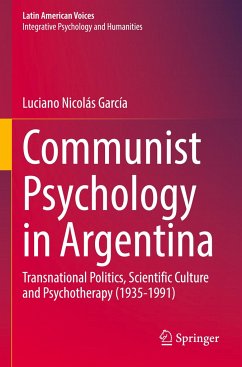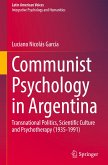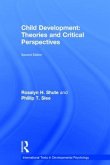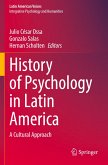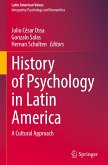This book presents an intellectual history of the reception of Soviet psychology in Argentina as part of the communist scientific culture promoted by the Argentine Communist Party. This research reconstructs the material conditions, the political conjunctures and disciplinary disputes that allowed the international circulation of the works and ideas of Ivan Pavlov and Lev Vygotsky, and analyzes how pavlovism and vygotskianism impacted psychology, psychiatry and the wider mental health field in Argentina between 1935 and 1991.
Starting on the 1930s, a group of professionals, scientists and intellectuals who belonged to the Argentine Communist Party introduced Soviet psychology in Argentina as an effort to promote the philosophical and political principles of Marxism-Leninism in Argentinean psychological and psychiatric academic circles, as well as in mental health institutions. This book shows how the efforts of this group contributed to the diffusion of communist scientific ideas and practices in South America as part of a transnational circuit of communist scholars and intellectuals that included France, Spain and the USA, which fostered scientific exchange and politicized science during the years of antifascist struggle and the Cold War.
Communist Psychology in Argentina: Transnational Politics, Scientific Culture and Psychotherapy (1935-1991) will be of interest to historians of psychology and psychiatry concerned with the study of the relationship between Marxism and psychology in the 20th century, as well as to historians of science in general attentive to the study of the circulation of scientific ideas, as the book reconstructs the networks of the international communist movement as an effort to provide a scientific basis for the development of a socialist program in different parts of the world.
Starting on the 1930s, a group of professionals, scientists and intellectuals who belonged to the Argentine Communist Party introduced Soviet psychology in Argentina as an effort to promote the philosophical and political principles of Marxism-Leninism in Argentinean psychological and psychiatric academic circles, as well as in mental health institutions. This book shows how the efforts of this group contributed to the diffusion of communist scientific ideas and practices in South America as part of a transnational circuit of communist scholars and intellectuals that included France, Spain and the USA, which fostered scientific exchange and politicized science during the years of antifascist struggle and the Cold War.
Communist Psychology in Argentina: Transnational Politics, Scientific Culture and Psychotherapy (1935-1991) will be of interest to historians of psychology and psychiatry concerned with the study of the relationship between Marxism and psychology in the 20th century, as well as to historians of science in general attentive to the study of the circulation of scientific ideas, as the book reconstructs the networks of the international communist movement as an effort to provide a scientific basis for the development of a socialist program in different parts of the world.

